Over the past two weeks, Congress approved a short-term extension of the nation’s borrowing authority and made further progress on Fiscal Year 22 (FY22) appropriations. Federal agencies have also advanced efforts to approve new state American Rescue Plan (ARP) funding proposals and distribute additional funding for broadband connectivity efforts. More recently, the Senate has advanced additional U.S. Department of Education (USED) nominees while President Biden issued an Executive Order aimed, in part, at advancing economic and educational opportunities for Black Americans.
 Short-term Debt Limit Deal Enacted
Short-term Debt Limit Deal Enacted
During the week of October 11, the House formally considered and approved a short-term increase of the nation’s borrowing authority, known as the debt limit. Lawmakers passed this measure along party lines by a margin of 219-206. Following passage, President Biden signed the legislation into law, which provides $480 billion in additional borrowing authority for the U.S. Treasury Department. This extension is estimated to provide sufficient borrowing authority through early December—a time when Congress must also act to pass a full-year funding measure for the current federal fiscal year (FY22) for programs like the Strengthening Career and Technical Education for the 21st Century Act (Perkins V).
Prior to this vote, however, Minority Leader Mitch McConnell (R-KY) sent a letter to President Biden making clear that his party will likely filibuster future Congressional efforts to pass a longer-term measure to extend or suspend the current debt limit.
Make Your Voice Heard
The short-term agreement on the debt limit provides more time to Congressional Democrats who are currently debating the size and scope of a forthcoming domestic spending package, modeled off of President Biden’s Build Back Better agenda that could potentially provide $4 billion in additional funding for Perkins V.
At this stage in the negotiations, it is critical that the Career Technical Education (CTE) community makes its voice heard to ensure a Perkins funding increase is included in a final agreement. Be sure to contact your members of Congress to remind them of the importance of investing in CTE. To do so, click here!
Senate Release Remaining FY22 Spending Bills
On October 18, the Senate Appropriations Committee released drafts of the remaining nine FY22 spending bills that had not been considered by the committee. Among these was the Labor, Health and Human Services, Education, and Related Agencies (Labor-HHS-ED) appropriations bill, which provides funding for USED and the related federal programs it oversees. Overall, the proposal would, if enacted, provide $98.4 billion for USED—an increase of $24.9 billion compared to the previous fiscal year. Most of this proposed increase would be devoted to nearly doubling the size of Title I formula funds for the Every Student Succeeds Act (ESSA).
Significantly, the bill proposes a $50 million increase for the Perkins V basic state grant program. This proposal aligns with House legislation passed earlier this year by the lower chamber which, if enacted, would provide a total increase of roughly $1.385 billion.
The proposal is not expected, however, to be formally marked up by the Senate. Rather, these bills will be used as the basis to begin bicameral and bipartisan negotiations for full-year FY22 funding—legislation that must be completed by December 3 when current short-term funding is set to expire. As these efforts progress, Advance CTE will continue to advocate for a robust investment in Pekins V’s basic state grant program as part of the wider FY22 process.
FCC Approves Additional Emergency Connectivity Fund Applications
The Federal Communications Commission (FCC) announced $1.1 billion in new commitments as part of the Emergency Connectivity Fund (ECF)’s second wave of funding distribution. The funding will cover 2.4 million devices and 1.9 million broadband connections. The approved projects will benefit learners and staff at 2,471 schools, and the patrons of 205 libraries. The FCC has approved over half of the applications filed during the program’s first application window and it is expected that the remaining qualified applications will be approved in the coming weeks. Securing initial funding for the ECF was a key advocacy priority for Advance CTE, at the start of the COVID-19 (coronavirus) pandemic, as part of wider efforts to close the ‘homework gap.’
USED Approves Four More State ARP Plans
This past spring, Congressional Democrats passed ARP legislation), which authorized $122 billion in supplementary funding for K-12 school districts. Since that time, USED distributed two-thirds of this funding via formula to help schools and states respond to the ongoing coronavirus pandemic. The Department, however, held back the remaining third of this funding requiring that states and territories submit plans detailing how these new financial resources would be used to support learners coping with the impacts of the public health crisis and related disruptions to schooling.
As part of this ongoing effort, USED has been periodically reviewing and approving state ARP plans for this purpose. On October 14, the Department approved four more of these plans for Guam, Maryland, Nebraska, and Virginia. Seven states and Puerto Rico are still awaiting approval from the Department, along with the release of these remaining ARP funds. The current status of all state ARP plans, including highlights of plans approved by USED so far, can be found here.
President Biden Issues Executive Order to Advance Educational Equity
On October 19, President Biden issued an Executive Order (EO) creating a new White House Initiative on Advancing Educational Equity, Excellence, and Economic Opportunity for Black Americans. The order enumerates several actions that the Biden Administration has already taken or plans to take to provide greater economic opportunity for Black families and communities, close educational achievement gaps for Black learners, improve health outcomes for these communities, and outlines a number of steps the administration plans to take regarding criminal justice reform among other elements. Importantly, the EO envisions CTE as being a key way to achieve some of these objectives stating, in part, that it will “[advance] racial equity and economic opportunity by connecting education to labor market needs through programs such as dual enrollment, career and technical education, registered apprenticeships, work-based learning . . .”
The order goes on to note that, “Eliminating these inequities requires expanding access to work-based learning and leadership opportunities, including mentorships, sponsorships, internships, and registered apprenticeships that provide not only career guidance, but also the experience needed to navigate and excel in successful careers.” In addition, the order establishes an interagency governmental working group, inclusive of federal CTE representatives from USED, to support the initiative’s broad remit. A related factsheet outlining this order can be found here.
Senate Confirms OCR Leader While Setting Sights on OCTAE Nomination Next Week
On October 20, Catherine Lhamon was narrowly approved by the Senate to become the next Assistant Secretary for USED’s Office for Civil Rights (OCR). The vote was evenly split along partisan lines, requiring a tie-breaking vote from Vice President Kamala Harris. Lhamon previously led OCR under President Obama where she oversaw a controversial overhaul of Title IX regulations—a move that has continued to be a primary source of opposition for Republican lawmakers.
In addition to Lhamon’s confirmation, the Senate Health, Education, Labor, and Pensions (HELP) Committee is scheduled to consider the nominations of two other USED officials, including Amy Loyd, to serve as the next Assistant Secretary for the Office of Career, Adult, and Technical Education (OCTAE) along with Sandra Bruce to be the Department’s next Inspector General next week. Advance CTE has strongly supported Loyd’s nomination and looks forward to a swift confirmation process in the coming weeks and months ahead.
Steve Voytek, Policy Advisor
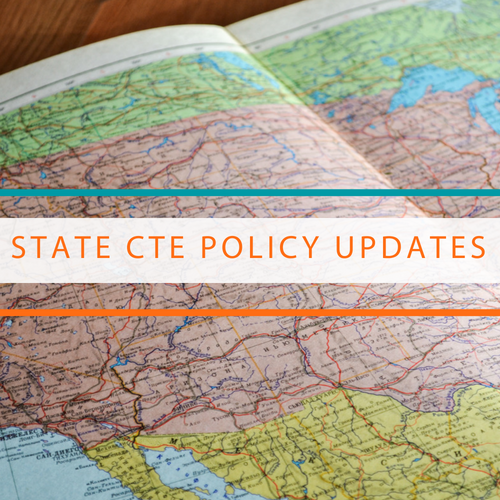 State education agencies, legislators and educators faced significant challenges from the coronavirus pandemic, including adapting to remote and hybrid delivery of hands-on learning, and responding to local and national skilled labor shortages. The number of state-level CTE policies enacted that affect Career Technical Education (CTE) fell to the lowest number in 2020 since Advance CTE and the Association for Career and Technical Education (ACTE) began publishing these annual Year in Review reports.
State education agencies, legislators and educators faced significant challenges from the coronavirus pandemic, including adapting to remote and hybrid delivery of hands-on learning, and responding to local and national skilled labor shortages. The number of state-level CTE policies enacted that affect Career Technical Education (CTE) fell to the lowest number in 2020 since Advance CTE and the Association for Career and Technical Education (ACTE) began publishing these annual Year in Review reports.

 On October 27 and 28, over 270 state Career Technical Education (CTE) leaders gathered for Advance CTE’s 2021 Fall Meeting. Through timely plenary discussions, breakout and networking sessions, members and supporters were able to reflect on the transformations of the COVID-19 (coronavirus) pandemic, gain knowledge on the latest research and promising practices in states, and create community by building networks with leaders in similar roles.
On October 27 and 28, over 270 state Career Technical Education (CTE) leaders gathered for Advance CTE’s 2021 Fall Meeting. Through timely plenary discussions, breakout and networking sessions, members and supporters were able to reflect on the transformations of the COVID-19 (coronavirus) pandemic, gain knowledge on the latest research and promising practices in states, and create community by building networks with leaders in similar roles.  Short-term Debt Limit Deal Enacted
Short-term Debt Limit Deal Enacted 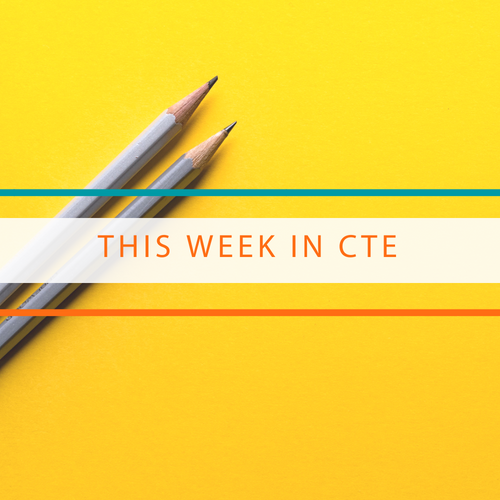 Developed with input from nearly 200 national, state and local education and workforce development leaders and supported by 40 national organizations,
Developed with input from nearly 200 national, state and local education and workforce development leaders and supported by 40 national organizations, 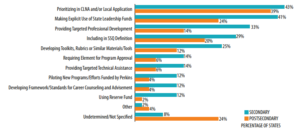
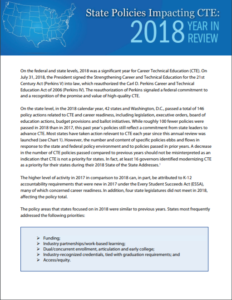 2018 was a significant year for Career Technical Education (CTE) at the federal and state levels. On July 31, 2018, the President signed the Strengthening Career and Technical Education for the 21st Century Act (Perkins V) into law, which reauthorized the Carl D. Perkins Career and Technical Education Act of 2006 (Perkins IV). The reauthorization of Perkins signaled a federal commitment to and a recognition of the promise and value of high-quality CTE. Additionally, at the state level 42 states and Washington, D.C., passed a total of 146 policy actions related to CTE and career readiness, reflecting a commitment from state leaders to advance CTE.
2018 was a significant year for Career Technical Education (CTE) at the federal and state levels. On July 31, 2018, the President signed the Strengthening Career and Technical Education for the 21st Century Act (Perkins V) into law, which reauthorized the Carl D. Perkins Career and Technical Education Act of 2006 (Perkins IV). The reauthorization of Perkins signaled a federal commitment to and a recognition of the promise and value of high-quality CTE. Additionally, at the state level 42 states and Washington, D.C., passed a total of 146 policy actions related to CTE and career readiness, reflecting a commitment from state leaders to advance CTE.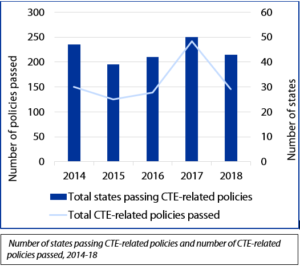 While roughly one hundred fewer policies were passed in 2018 than in 2017, this past year’s policies still reflect a commitment from state leaders to advance CTE. A decrease in the number of CTE policies passed compared to previous years should not be misinterpreted as an indication that CTE is not a priority for states. In fact,
While roughly one hundred fewer policies were passed in 2018 than in 2017, this past year’s policies still reflect a commitment from state leaders to advance CTE. A decrease in the number of CTE policies passed compared to previous years should not be misinterpreted as an indication that CTE is not a priority for states. In fact, 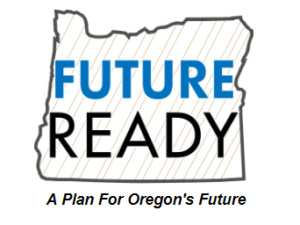 In
In 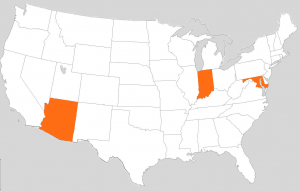 It is possible that 2017 will be a pivotal year for Career Technical Education (CTE). With
It is possible that 2017 will be a pivotal year for Career Technical Education (CTE). With 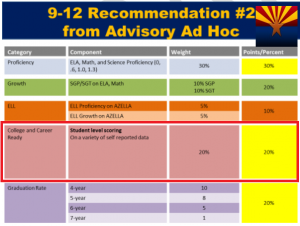 Over in the Grand Canyon State, the Arizona State Board of Education approved a comprehensive (albeit somewhat confusing) college and career readiness indicator to include in the state’s accountability system. The
Over in the Grand Canyon State, the Arizona State Board of Education approved a comprehensive (albeit somewhat confusing) college and career readiness indicator to include in the state’s accountability system. The